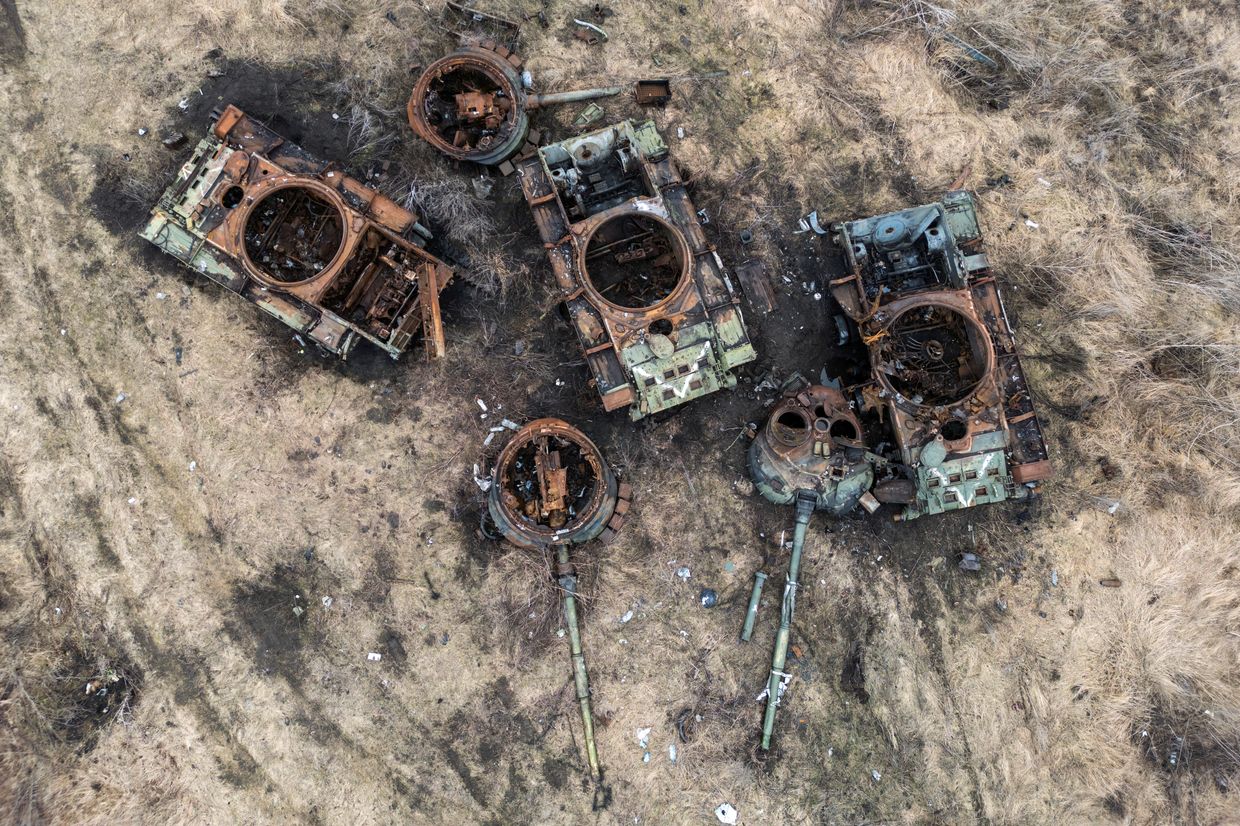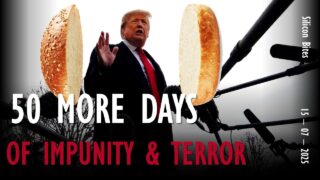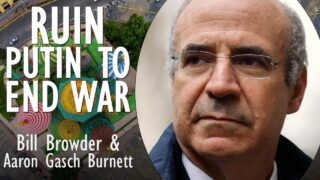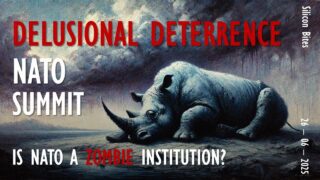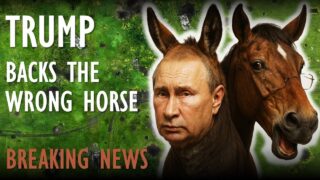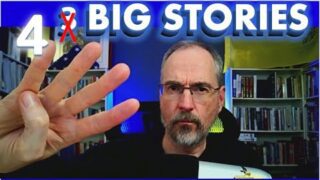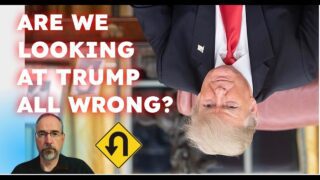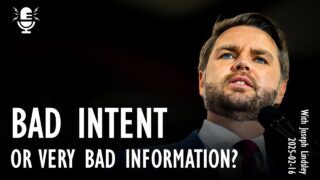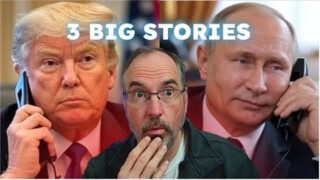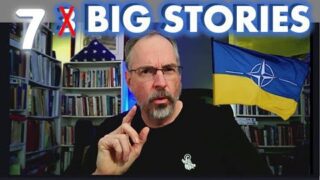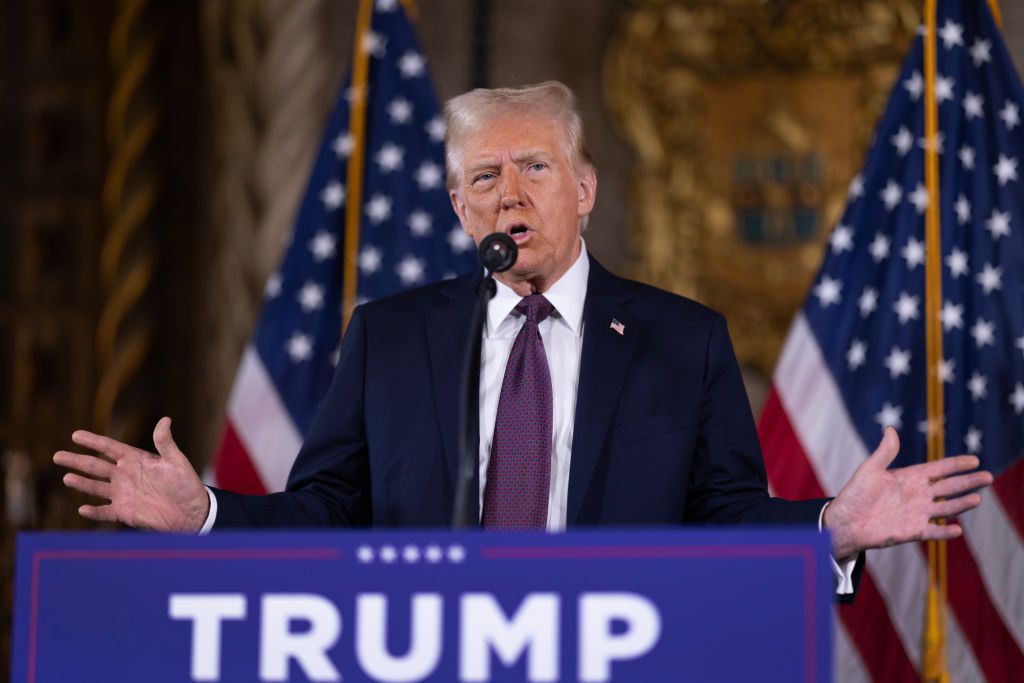
Despite Trump's claims, Russia didn't invade Ukraine because of NATO
President-elect Donald Trump, on Jan. 7, blamed the outgoing U.S. President Joe Biden for Russia's all-out war against Ukraine.
Trump said Biden's support of Ukraine's NATO membership had led to Russia's war against the country. "I could understand their feelings," he said, referring to the country that launched the deadliest war in Europe since World War II.
Trump's statements were far from reality, with Biden never officially supporting Ukraine's NATO aspiration and the White House being the main obstacle to Kyiv receiving a formal invite to join the alliance.
"It is possible that in two days, Trump will say something completely different, or Putin will make him angry because he will," Aaron Burnett, a senior fellow at the Democratic Strategy Initiative, told the Kyiv Independent.
"(Trump's statements) is just a word salad."
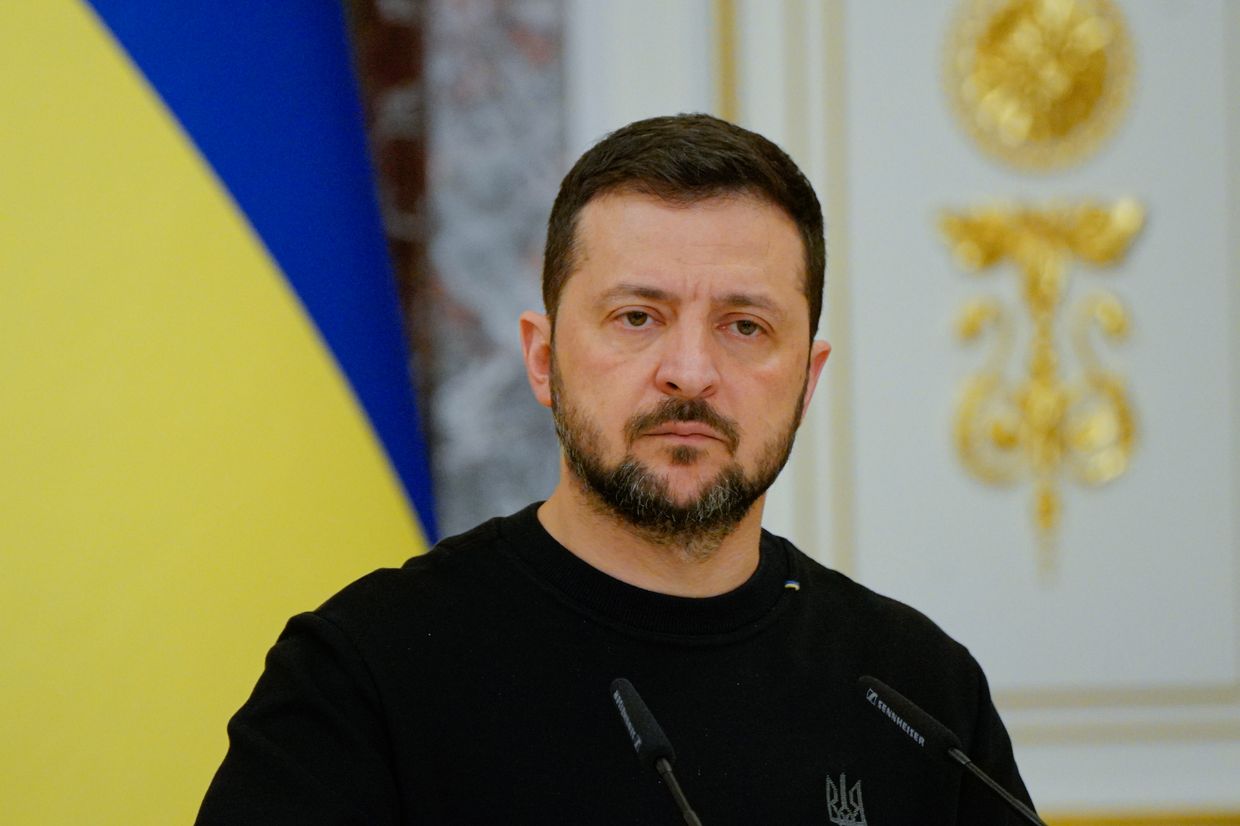

Trump's NATO problem
During the Jan. 7 press conference, President-elect Trump was explicit in his desire to seek territorial expansion, not ruling out using military force against Panama and NATO ally Denmark, and using economic mechanisms to conquer Canada.
Trump also said he understands the desire for Russia's territorial expansion, blaming his country for Russia's war.
"A big part of the problem is, Russia — for many, many years, long before (Vladimir) Putin — said, 'You could never have NATO involved with Ukraine.' Now, they've said that. That's been, like, written in stone," Trump said.
"And somewhere along the line, Biden said, 'No. They should be able to join NATO.' Well, then Russia has somebody right on their doorstep, and I could understand their feelings about that."
Russia invaded Ukraine in 2014 when there were no talks about Ukraine joining NATO. The public opinion prior to Russia's invasion was also not in favor of joining the bloc.
However, soon to be president, Trump, had long held unconventional views on NATO, its goals and the ways it works.
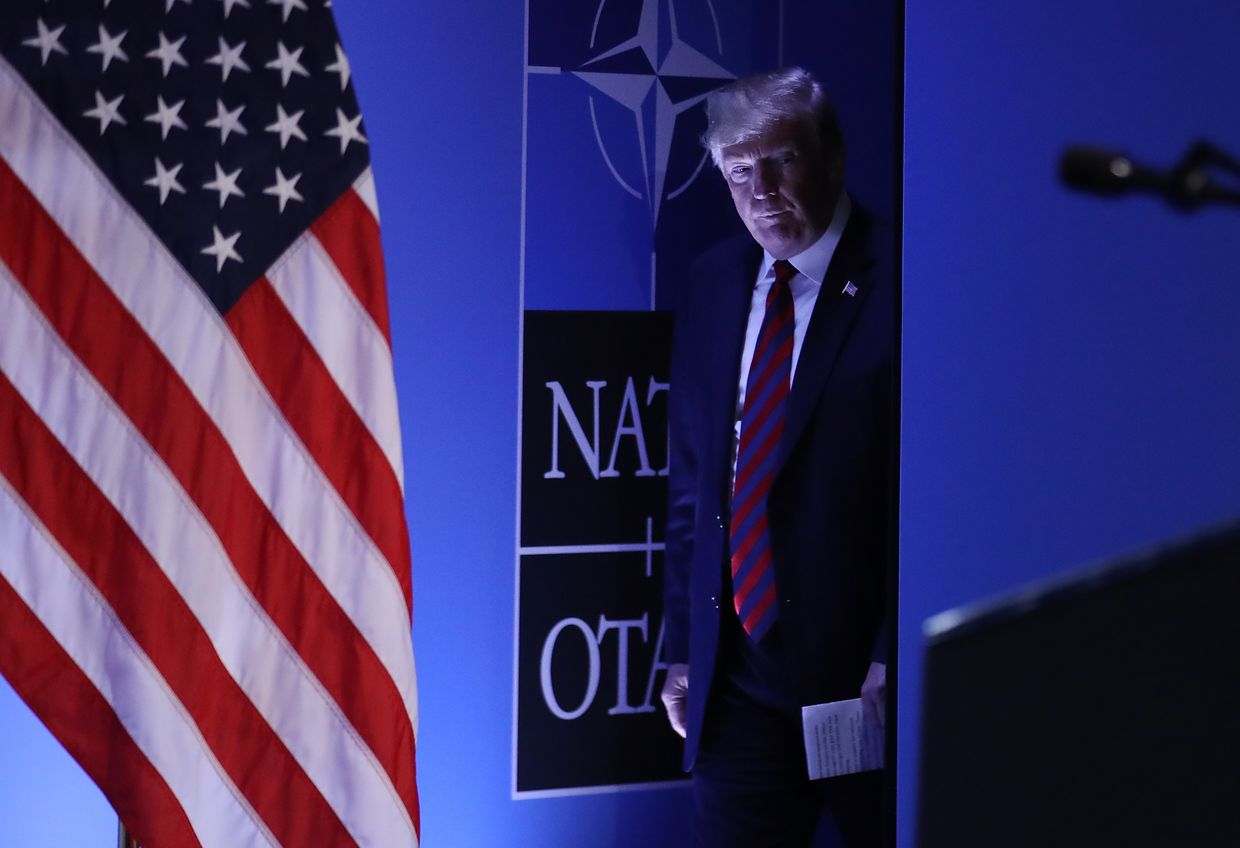

During his presidential campaign, Trump caused concern among NATO members by saying he would not rule out the U.S. leaving the alliance. According to the president-elect, European countries are not contributing enough and "should play fair."
Trump's statement that he would allow Russia "to do whatever it wanted" to NATO member countries failing to meet defense spending criteria sparked even bigger outrage.
"No, I would not protect you," Trump said at a February rally in Conway, South Carolina. "In fact, I would encourage them (Russia) to do whatever the hell they want. You got to pay. You got to pay your bills."
For years, Trump demanded that NATO countries spend 2 percent of their GDP on defense, a target reached by 23 NATO countries out of 32 in 2024. All states that border Russia spend over 2 percent of their defense.
As it frequently happens, on Jan. 7, Trump changed his desires, saying he wants NATO member states to spend 5 percent of their GDP on defense, a figure currently reached by zero NATO countries, including the U.S.
Since collective defense against aggression is the foundation of NATO, the U.S. reneging on its commitments would collapse the alliance.
Meanwhile, Vice President-elect J.D. Vance told NBC News that Trump has no intention of withdrawing from NATO. Trump wants NATO countries to "actually carry their share of the defense burden," Vance added.
Ukraine's long path to NATO
Meanwhile, the doors to Ukraine's membership in NATO were never really opened, and now it looks like they are shutting completely.
Since its independence, Ukraine made a number of attempts to join the alliance, seen as the only real guarantee for the country's security.
In 2008, Ukraine sent an official application for a NATO Membership Action Plan (MAP), which if approved, would set the road for the country to join the alliance once all the criteria would be met.
U.S. President George Bush, a Republican, was a key supporter of Ukraine's desire to join the alliance.
The main opponents of Ukraine's potential membership were Germany and France, and despite a U.S.-led push to persuade German Chancellor Angela Merkel and French President Nicolas Sarkozy to welcome Kyiv, neither had budged.
When the Democrats took the White House, the question of NATO membership for Ukraine was off the table, with neither President Barack Obama nor Biden supporting the Ukrainian aspiration.
Under Ukraine's pro-Russian President Viktor Yanukovych, who ruled the country between 2010 and 2014, the commission for preparing the country for NATO membership and the National Center for Euro-Atlantic Integration were dismantled.
According to Ukrainian polls, before Russia's invasion of Ukraine in 2014, slightly over 20 percent of the country's population supported joining NATO.
Following Russia's occupation of Ukraine's Crimea and the eastern part of Ukraine's Donetsk and Luhansk oblasts, over 50 percent of Ukrainians said they would vote for NATO membership.
Following Russia's full-scale invasion, the number of Ukrainians supporting NATO membership jumped to over 80 percent.
In September 2022, as Russian troops were occupying parts of five Ukrainian regions, Kyiv officially applied to join the alliance. The U.S., under Biden's leadership, didn't support Ukraine's request.
"It was Biden and (Olaf) Scholz primarily who were putting the brakes on any invitation for Ukraine to NATO during the Vilnius Summit, for example. When other countries, most notably Central and Eastern Europe, the U.K., and even France, to a certain extent, were far more in favor at that time," Burnett said.
"Trump's rhetoric has the effect of absolutely putting in complete misinformation and disinformation about this particular question and America's willingness to actually have Ukraine in NATO and invite Ukraine to NATO."
Ukraine's potential accession to NATO is not the reason for Russia's attack, Burnett said, adding that Putin has repeatedly hinted that he does not recognize Ukraine as a sovereign state.
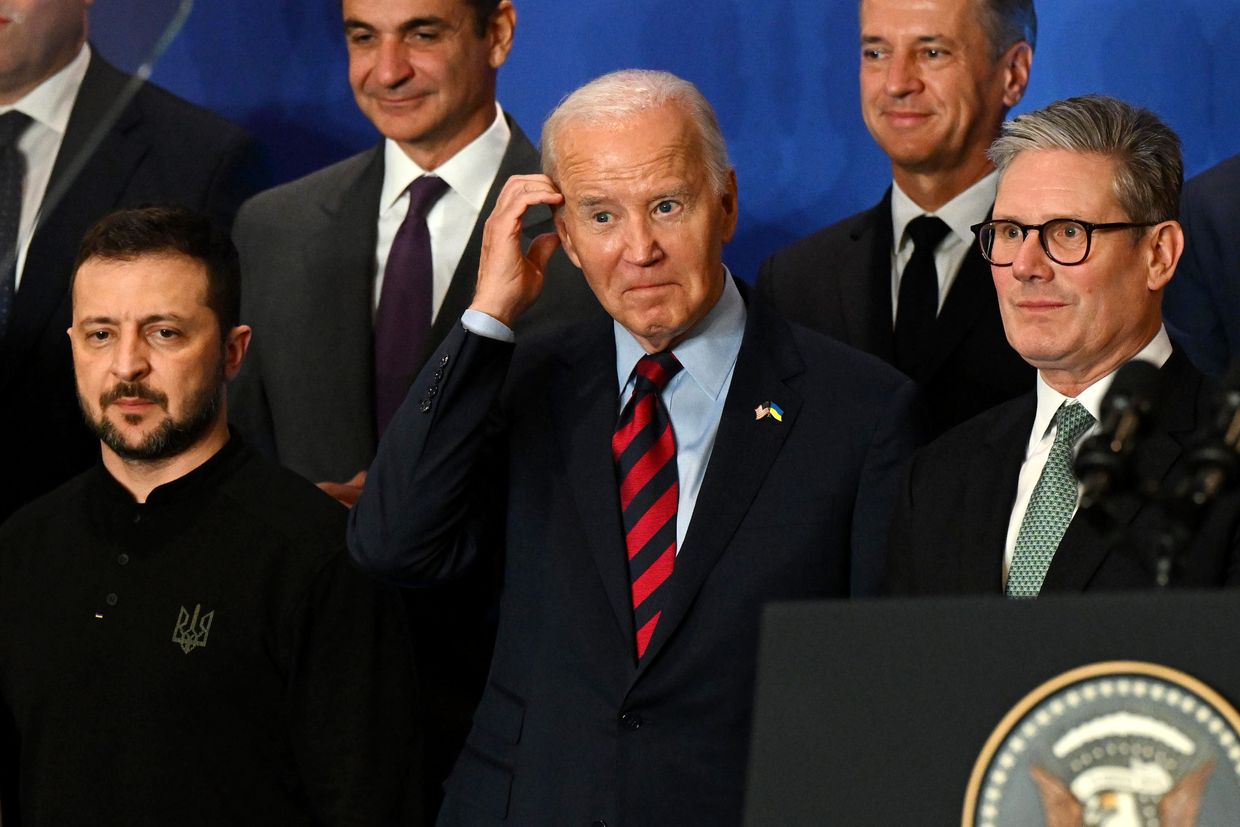

"Putin invaded Ukraine because he doesn't see it as a state, he doesn't believe that it has the right to exist as a state, and he's a neo-imperialist."
President Volodymyr Zelensky said on Jan. 8 that the absence of NATO membership and concrete security guarantees contributed to Russia's decision to launch the full-scale invasion.
"Putin realized no one would stand up for Ukraine. He thought he could destroy us, but the Ukrainian army proved him wrong," Zelensky said.
According to Burnett, Trump has also shown neo-imperialist views, especially given his recent controversial statements about turning Canada into "the 51st U.S. state" or "buying" Greenland.
Trump does not believe in alliances or the liberal world order, Burnett added.
The expert said several factors will influence Ukraine's future NATO bid. Trump's decision may be affected by Republicans who support Ukraine. Much will depend on Europe, how much its states are willing to spend on their defense, and whether Washington will be satisfied.
Ukraine will bear a heavy burden, but eventually, it will be difficult to predict any scenario at this point.
"Trump is unpredictable," Burnett said. "If anyone tells you they know what Trump's going to do, they are lying."
